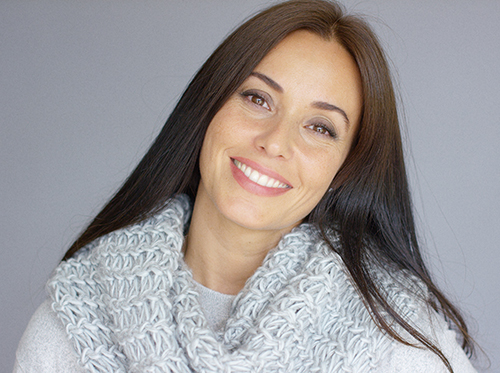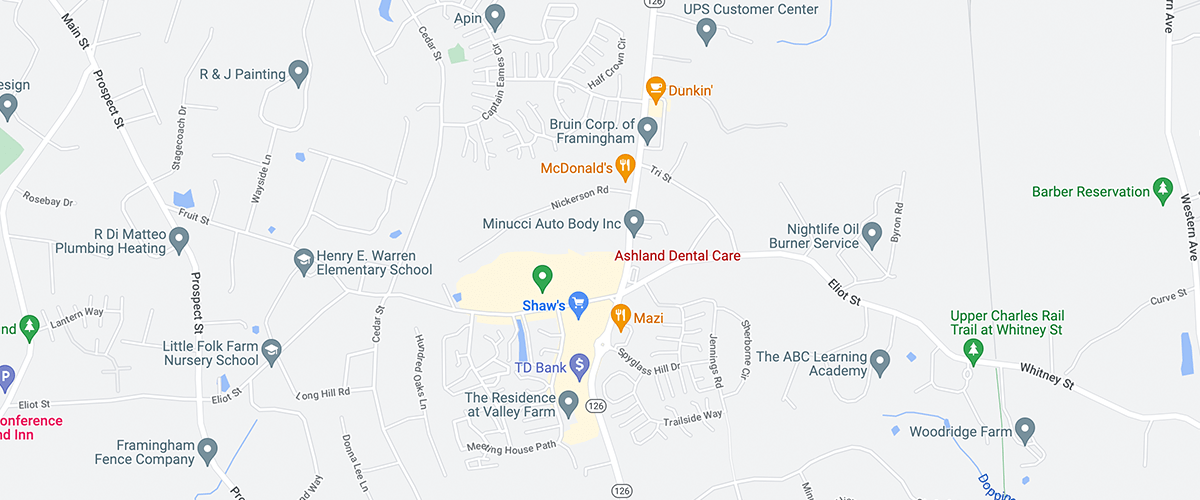October 9th, 2019

Xerostomia, commonly known as dry mouth, is a condition in which the salivary glands in the mouth don’t produce enough saliva. Saliva keeps the mouth moist and cleanses it of bacteria. A lack of it makes for an uncomfortably dry mouth that is also more susceptible to infection and disease.
Symptoms of dry mouth include:
- Dryness or a sticky feeling
- Frequent thirst
- Burning sensations or redness in the throat or on the tongue
- A sore throat or hoarseness
- Difficulty chewing, swallowing, or tasting food
Dry mouth usually comes about as a side effect of certain medications or medical conditions, but can also be caused by damage to the salivary glands because of injury or surgery.
If you're experiencing any of the symptoms of dry mouth, here are a few tips for what to do:
Double-check medications: If you are taking any prescription or over-the-counter medications, speak with Dr. Adam Persky to see if any of these could be causing the dry mouth as a side effect.
There may be ways to alleviate the symptoms.
- Stay hydrated: Whether you have dry mouth or not, it’s essential to stay hydrated. Drink plenty of fresh and pure water throughout the day. A good rule of thumb is to drink eight eight-ounce glasses of water a day.
- Suck or chew on a natural, sugar-free candy or gum: Sucking on candy or chewing gum will keep your salivary glands producing saliva. Healthier versions of sugar-free candy and gum are available these days. Some are made with xylitol, a sugar alcohol that actually helps prevent tooth decay.
- Add moisture to your living spaces: Try adding a vaporizer to your bedroom or the rooms where you spend the most time. It’s best for your home to have a humidity level of between 40 to 50%. Anything less than 30% is too low. You can measure humidity with a hygrometer, which is easy to find at your local department store or online.
These are just a few general tips, but if you’re experiencing the symptoms of dry mouth often and it’s interfering with your life, pay a visit to our Ashland office. That way you’re more likely to get to the root of the problem.
October 2nd, 2019

Adults are no strangers to feeling like there is never enough time in the day to get everything done. Your alarm clock rings and within minutes you ping pong around trying to spread peanut butter on sandwiches, answer your cell phone, remove the dog hair from your clothes, and make sure your child has completed his or her science fair project. Brushing your teeth can easily fall to the wayside. That is why our office promotes a simple, daily oral health regimen that you can easily incorporate into your busy lifestyle.
The American Dental Hygienists' Association (ADHA), in partnership with the Wrigley Jr. Company, is celebrating National Dental Hygiene Month (NDHM) during October. The ADHA encourages people to "Brush. Floss. Rinse. Chew...Keep it Clean, Keep it Healthy!" and offers some great tips for a quick and effective home oral health routine, below:
Oral Health Routine at Home
- Brushing your teeth twice daily is the most important thing you can do to diminish the accumulation of plaque and the potential for other oral problems such as cavities and gingivitis.
- Flossing once daily removes plaque and food from beneath the gums and between teeth that brushing alone cannot remove. Tooth decay and gum disease often begin in these areas.
- Rinsing your mouth with an antibacterial, non-alcohol based mouthwash kills plaque and gingivitis germs that brushing and flossing do not catch. We recommend using a mouthwash with the ADA Seal of Acceptance.
- Chewing sugar-free gum helps produce saliva, which battles cavities. The gum also neutralizes plaque, strengthens enamel, and removes remaining food. It is especially important to chew gum after eating or drinking.
It's easy to put the toothbrush down in order to take care of matters you feel are more urgent, but remember, a good oral health routine at home is the best way to prevent periodontal disease. "Periodontal disease is the most common cause of tooth loss in adults. An estimated 75 percent of Americans reportedly have some form of periodontal disease," said the ADHA. Periodontal disease also is linked to more serious illnesses such as diabetes and stroke.
Also, remember to keep regular visits with our office. Dr. Adam Persky can help you learn more about proper care for your teeth and gums.
September 25th, 2019

Our team at Ashland Dental Care understands that the sights, sounds and sensations at a dental office can be unsettling for some patients. One effective technique that we use to comfort you is to offer the gas nitrous oxide. Nitrous oxide is a common anesthetic used during many dental procedures.
What is nitrous oxide?
Nitrous oxide is an oxide of nitrogen which has a slight sweet odor and taste. During medical or dental procedures, the gas is mixed with oxygen then inhaled through a mask that covers your nose. Within minutes, you should feel calm and experience an overall sense relaxation. You will be able to breathe on your own, move your limbs, and be conscious enough to hear and respond to our dentist's questions. The effects of nitrous oxide disappear shortly after the mask is removed and the drug is quickly eliminated from your body.
Is nitrous oxide safe?
Recreational use of nitrous oxide for its euphoric effects can be dangerous, however, the drug is combined with oxygen at dental offices. This ensures oxygen reaches the brain and prevents dangerous side effects or hypoxia. Nitrous oxide inhalation is a safe and effective technique to reduce anxiety, produce analgesia, and enhance effective communication.
Nitrous oxide is non-addictive and non-allergic, however, it may cause nausea in up to ten percent of patients. The drug is not recommended for people with some medical conditions such as chronic pulmonary disease. We recognize that all patients are different and encourage you to talk with Dr. Adam Persky about whether nitrous oxide would be a good option for you.
Our team wants to help all patients in Ashland to overcome dental anxiety, so please, give us a call at Ashland Dental Care.
September 18th, 2019

A study conducted in Washington State in 2004 and another conducted in Madrid, Spain in 2012 both reported findings that support a direct relationship between parents’ dental fear and their child’s fear of the dentist.
The Washington study examined dental fear among 421 children ages 0.8 to 12.8 years old. They were patients at 21 different private pediatric dental practices in western Washington state. The Spanish study observed 183 children between the ages of seven and 12 as well as their parents.
The Washington study used responses from both parents and the Dental Sub-scale of the Child Fear Survey Schedule. The survey consisted of 15 questions, which invited answers based on the child’s level of fear. The scale was one to five: one meant the child wasn’t afraid at all, and five indicated he or she was terrified. The maximum possible points (based on the greatest fear) was 75.
Spanish researchers found a direct connection between parental dental fear levels and those among their kids. The most important new discovery from the Madrid study was that the greater the fear a father had of going to the dentist, the higher the level of fear among the other family members.
Parents, but especially fathers, who feared dental procedures appeared to pass those fears along to every member of the family. Parents can still have some control over fear levels in their children. It is best not to express your own concerns in front of kids; instead, explain why going to the dentist is important.
Dr. Adam Persky and our team work hard to make your child’s visit at our Ashland office as comfortable as possible. We understand some patients may be more fearful than others, and will do our best to help ease your child’s anxiety.




